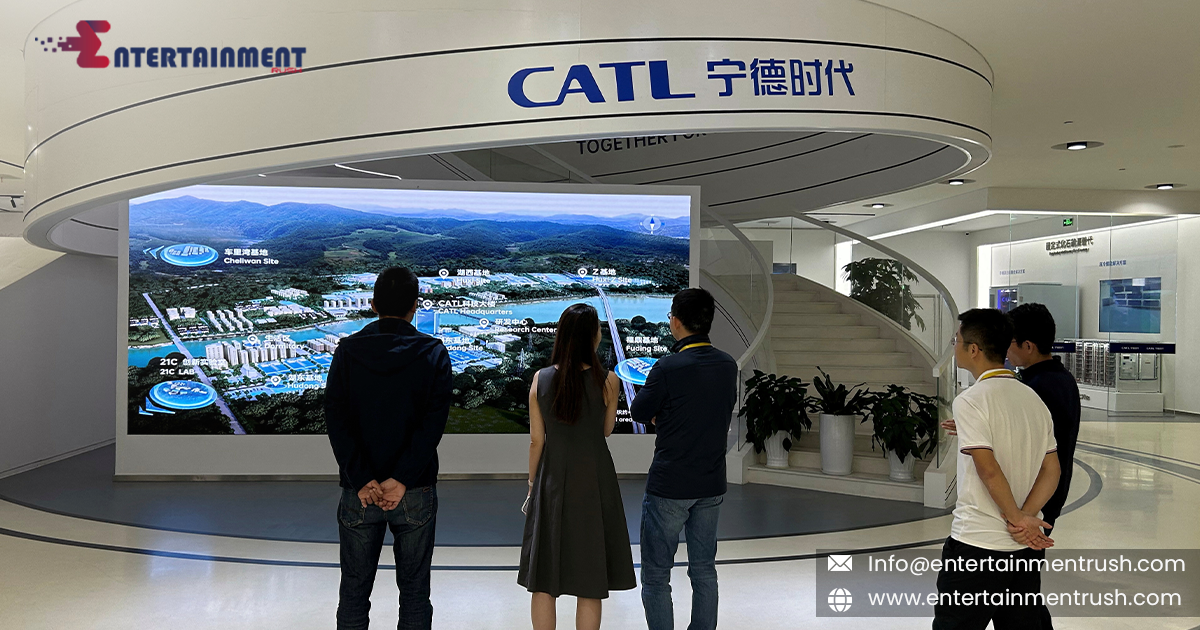In a significant development for the electric vehicle (EV) and battery industries, China’s largest battery manufacturer, Contemporary Amperex Technology Co. Ltd. (CATL), has unveiled plans to build a manufacturing plant in the United States—contingent upon the approval of former President Donald Trump. This move underscores the growing importance of the U.S. market in the global transition to electric vehicles, as well as the complex geopolitical considerations that influence the flow of foreign investment.
CATL, the world’s largest supplier of lithium-ion batteries, plays a pivotal role in the electric vehicle supply chain. Its batteries are used by some of the largest EV makers, including Tesla, BMW, and Volkswagen. Given the rising demand for electric vehicles, CATL’s decision to set up a production facility in the U.S. could significantly enhance its presence in the region, making it a critical player in the race for EV dominance.
The Role of Politics in Global Investment
While CATL’s plans to enter the U.S. market have been met with excitement, the approval of the project hinges on political factors, particularly the stance of Donald Trump, who has been a vocal critic of China’s influence in American industries. Trump’s “America First” policies focused on reducing U.S. dependence on foreign-made goods, particularly in critical industries like automotive manufacturing and technology. This included imposing tariffs on Chinese imports, especially on products like batteries and automotive parts.
The former president’s policies have created a challenging environment for Chinese companies looking to expand in the U.S., with concerns about national security, job creation, and the U.S.-China trade balance. However, with Trump’s possible return to politics, CATL is carefully navigating the political landscape. The company is looking to engage with U.S. regulators and lawmakers to ensure that its investment aligns with both U.S. economic priorities and national security concerns.
The Strategic Importance of U.S. Operations
The U.S. is one of the largest markets for electric vehicles, and with government incentives pushing for the adoption of clean energy technologies, the demand for EV batteries is skyrocketing. For CATL, setting up a U.S. plant would be a strategic move to secure a larger market share in the growing electric vehicle ecosystem. By manufacturing locally, CATL could also mitigate the impact of tariffs and logistics costs associated with shipping batteries from China.
A U.S. facility would also allow CATL to work more closely with American automakers, strengthening partnerships and ensuring the supply chain is efficient and resilient. Additionally, such a plant would create American jobs and contribute to the U.S.’s goal of reducing reliance on foreign energy and technology, which could make it a more attractive proposition for policymakers.
Navigating Trade Tensions
Despite the clear business advantages, CATL must navigate a complex web of trade tensions and regulatory hurdles. The Biden administration has maintained a tough stance on China, particularly in areas related to technology and supply chains. Even though the U.S. is keen on expanding its EV infrastructure and battery production capacity, CATL must address concerns related to national security and its ties to the Chinese government.
Trump’s policies regarding China remain a key factor. His administration’s trade war with China, which saw tariffs imposed on billions of dollars’ worth of goods, sent a clear signal to Chinese companies about the difficulties of entering the U.S. market. However, CATL may be hoping for a change in the political winds, with Trump possibly easing the restrictions if he were to regain influence. Such a move could create a more favorable environment for CATL’s investment in the U.S.
The Road Ahead
If Trump approves CATL’s plan to build a U.S. plant, it would mark a significant milestone for the global electric vehicle industry. Not only would it strengthen the supply chain for electric vehicles in North America, but it could also spur further competition among battery manufacturers, leading to innovations and advancements that benefit both manufacturers and consumers alike.
However, much remains uncertain. The future of U.S.-China relations is highly unpredictable, and any shift in political leadership or policy direction could alter the landscape for foreign investments like CATL’s. CATL will need to carefully monitor the evolving political situation and adapt its strategy accordingly.
In the coming months, as CATL continues to push for approval, the outcome of these discussions could play a pivotal role in determining how the U.S. automotive and energy sectors evolve in the coming decade. Whether or not the U.S. will embrace CATL’s investment—and whether the approval will come from Trump’s leadership—remains to be seen, but the stakes are high. For now, the world watches closely as one of the most influential players in the global battery market navigates the complexities of international trade and politics.




Leave feedback about this